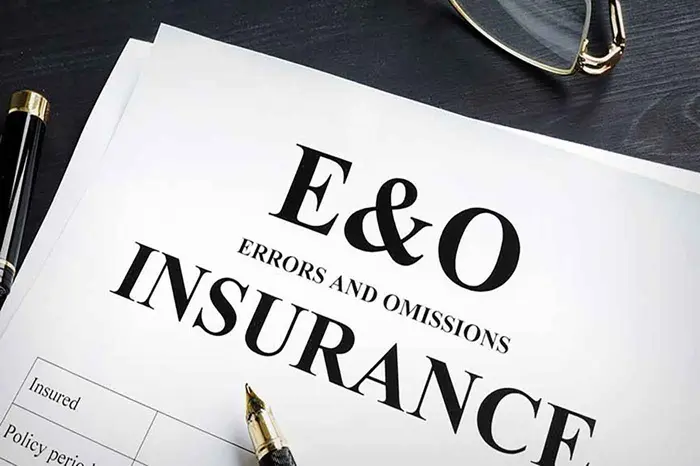Errors and Omissions (E&O) insurance is a crucial component of a notary’s professional toolkit. This insurance protects notaries from liability arising from mistakes or omissions during the execution of their duties. Deciding on the appropriate amount of E&O insurance can be a complex process, requiring consideration of various factors such as the scope of your work, potential risks, and state regulations. This article aims to provide a comprehensive guide on how much E&O insurance you need as a notary.
Understanding E&O Insurance
What is E&O Insurance?
E&O insurance, also known as professional liability insurance, is designed to protect professionals from claims made by clients for inadequate work or negligent actions. For notaries, this can include errors made in the notarization process, such as misidentification, incorrect document handling, or failure to perform notarial duties correctly.
Why is E&O Insurance Important for Notaries?
Notaries are responsible for verifying the authenticity of documents and the identity of signatories. Mistakes in this process can lead to significant financial and legal consequences for clients. E&O insurance provides financial protection against these potential claims, covering legal fees, settlements, and damages.
See Also: 5 Types Of Insurance For Advisors
Factors Influencing E&O Insurance Requirements
Scope of Work
The nature and volume of the documents you notarize can influence the amount of E&O insurance you need. Notaries who handle high-value transactions, such as real estate or business deals, may require higher coverage due to the increased potential liability.
State Regulations
Different states have varying requirements for notary E&O insurance. Some states mandate a minimum amount of coverage, while others leave it to the notary’s discretion. It is essential to understand your state’s specific regulations to ensure compliance.
Risk Exposure
Assessing your risk exposure involves considering the types of clients you serve and the potential consequences of an error. Notaries working with large corporations or government entities may face higher risks and thus need more coverage.
Determining the Right Amount of E&O Insurance
Minimum Coverage Requirements
Check your state’s requirements for minimum E&O insurance coverage. This provides a baseline, but it is often advisable to consider higher coverage to ensure comprehensive protection.
Industry Standards
Research industry standards and practices. Many notaries carry E&O insurance coverage ranging from $25,000 to $100,000. Understanding what is typical in your industry can help guide your decision.
Personal Risk Assessment
Conduct a personal risk assessment. Consider the following questions:
What is the highest value transaction you have notarized?
What are the potential financial implications of an error in your work?
How frequently do you perform notarial acts?
Calculating Potential Liability
Estimating Financial Impact
Estimate the financial impact of a potential error. Consider the costs of legal defense, settlements, and damages. This can help you gauge the amount of coverage needed to protect against worst-case scenarios.
Legal Consultation
Consult with a legal professional specializing in notary practices. They can provide valuable insights into potential liabilities and recommend appropriate coverage levels based on your specific situation.
Examples of E&O Insurance Claims
Common E&O Claims for Notaries
Understanding common claims can help you assess your risk. Examples include:
Incorrect notarization of mortgage documents leading to financial loss for the lender.
Misidentification of a signatory resulting in a fraudulent transaction.
Errors in handling estate documents causing legal disputes among heirs.
Case Studies
Review case studies of E&O insurance claims involving notaries. These real-world examples illustrate the potential risks and financial consequences of notarial errors, emphasizing the importance of adequate coverage.
Choosing an E&O Insurance Provider
Evaluating Insurance Providers
When selecting an E&O insurance provider, consider the following factors:
Reputation and financial stability of the insurer.
Coverage options and flexibility to tailor policies to your needs.
Customer service and claims handling process.
Comparing Quotes
Obtain quotes from multiple insurance providers. Compare coverage limits, deductibles, premiums, and additional benefits to find the best policy for your needs.
Additional Considerations
Duration of Coverage
Consider the duration of coverage. Some policies offer claims-made coverage, which protects against claims made during the policy period. Others provide occurrence coverage, which protects against incidents that occur during the policy period, even if the claim is made later.
Policy Exclusions
Review policy exclusions carefully. Understand what is not covered to avoid unexpected gaps in protection. Common exclusions for notary E&O insurance may include fraudulent acts, intentional misconduct, and certain types of document notarization.
Maintaining Adequate E&O Insurance
Regular Policy Review
Regularly review your E&O insurance policy to ensure it meets your current needs. As your notary business evolves, your risk exposure may change, necessitating adjustments to your coverage.
Continuing Education
Stay informed about changes in notary laws and best practices. Continuing education can help you minimize errors and reduce the likelihood of claims, potentially leading to lower insurance premiums.
Membership in Professional Associations
Consider joining professional notary associations. These organizations often provide resources, support, and access to group insurance rates, which can help you secure adequate coverage at a competitive price.
Conclusion
Determining the right amount of E&O insurance as a notary involves a thorough assessment of your work scope, state regulations, risk exposure, and potential liabilities. By understanding these factors and regularly reviewing your coverage, you can ensure that you are adequately protected against the financial and legal consequences of notarial errors. Remember, the right amount of E&O insurance provides peace of mind, allowing you to perform your duties confidently and professionally.
Related topics:
































